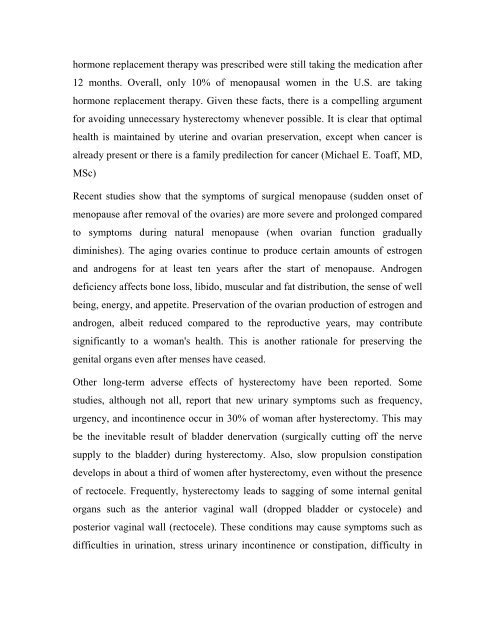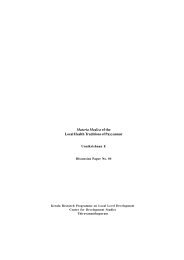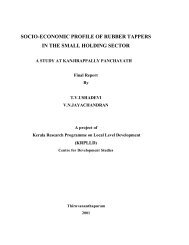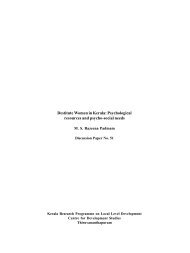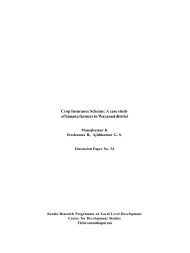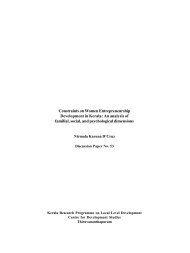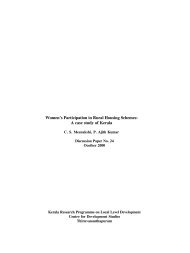Psycho-social problems of women who had undergone hysterectomy
Psycho-social problems of women who had undergone hysterectomy
Psycho-social problems of women who had undergone hysterectomy
Create successful ePaper yourself
Turn your PDF publications into a flip-book with our unique Google optimized e-Paper software.
hormone replacement therapy was prescribed were still taking the medication after12 months. Overall, only 10% <strong>of</strong> menopausal <strong>women</strong> in the U.S. are takinghormone replacement therapy. Given these facts, there is a compelling argumentfor avoiding unnecessary <strong>hysterectomy</strong> whenever possible. It is clear that optimalhealth is maintained by uterine and ovarian preservation, except when cancer isalready present or there is a family predilection for cancer (Michael E. Toaff, MD,MSc)Recent studies show that the symptoms <strong>of</strong> surgical menopause (sudden onset <strong>of</strong>menopause after removal <strong>of</strong> the ovaries) are more severe and prolonged comparedto symptoms during natural menopause (when ovarian function graduallydiminishes). The aging ovaries continue to produce certain amounts <strong>of</strong> estrogenand androgens for at least ten years after the start <strong>of</strong> menopause. Androgendeficiency affects bone loss, libido, muscular and fat distribution, the sense <strong>of</strong> wellbeing, energy, and appetite. Preservation <strong>of</strong> the ovarian production <strong>of</strong> estrogen andandrogen, albeit reduced compared to the reproductive years, may contributesignificantly to a woman's health. This is another rationale for preserving thegenital organs even after menses have ceased.Other long-term adverse effects <strong>of</strong> <strong>hysterectomy</strong> have been reported. Somestudies, although not all, report that new urinary symptoms such as frequency,urgency, and incontinence occur in 30% <strong>of</strong> woman after <strong>hysterectomy</strong>. This maybe the inevitable result <strong>of</strong> bladder denervation (surgically cutting <strong>of</strong>f the nervesupply to the bladder) during <strong>hysterectomy</strong>. Also, slow propulsion constipationdevelops in about a third <strong>of</strong> <strong>women</strong> after <strong>hysterectomy</strong>, even without the presence<strong>of</strong> rectocele. Frequently, <strong>hysterectomy</strong> leads to sagging <strong>of</strong> some internal genitalorgans such as the anterior vaginal wall (dropped bladder or cystocele) andposterior vaginal wall (rectocele). These conditions may cause symptoms such asdifficulties in urination, stress urinary incontinence or constipation, difficulty in


